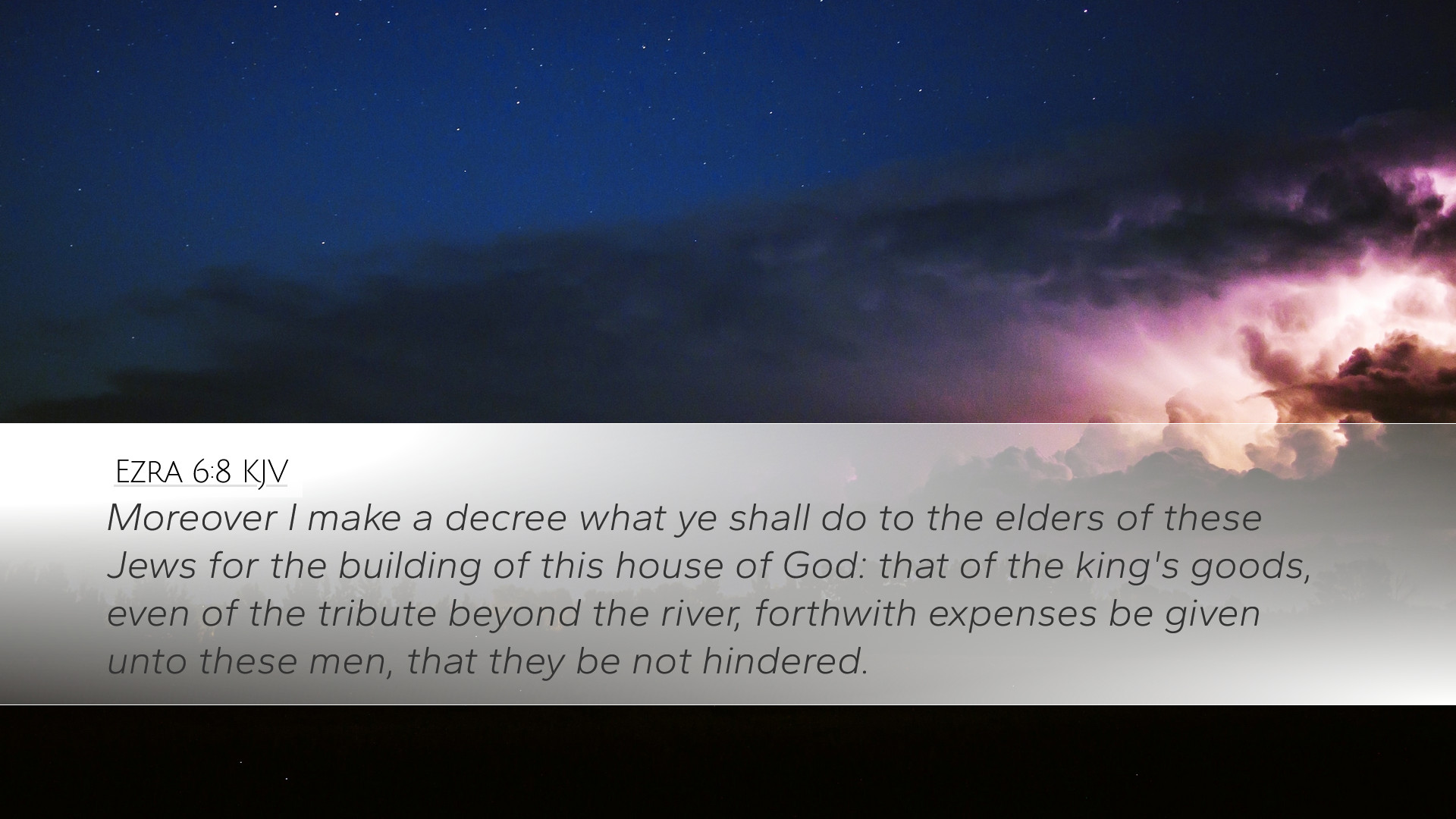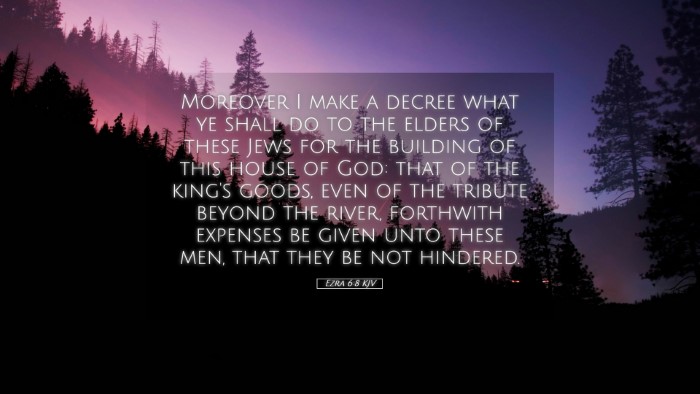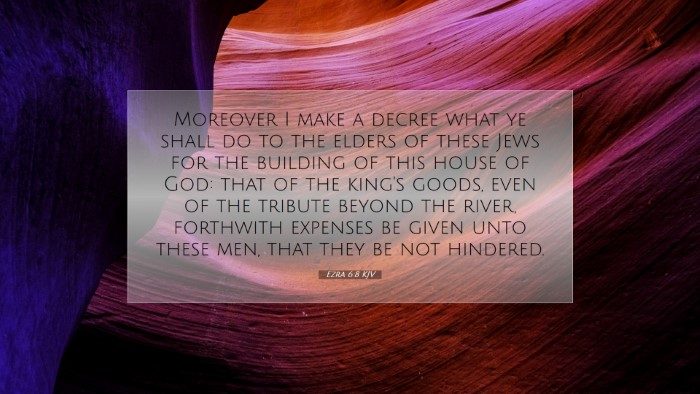Old Testament
Genesis Exodus Leviticus Numbers Deuteronomy Joshua Judges Ruth 1 Samuel 2 Samuel 1 Kings 2 Kings 1 Chronicles 2 Chronicles Ezra Nehemiah Esther Job Psalms Proverbs Ecclesiastes Song of Solomon Isaiah Jeremiah Lamentations Ezekiel Daniel Hosea Joel Amos Obadiah Jonah Micah Nahum Habakkuk Zephaniah Haggai Zechariah MalachiEzra 6:8
Ezra 6:8 KJV
Moreover I make a decree what ye shall do to the elders of these Jews for the building of this house of God: that of the king's goods, even of the tribute beyond the river, forthwith expenses be given unto these men, that they be not hindered.
Ezra 6:8 Bible Commentary
Commentary on Ezra 6:8
Verse Text: "Moreover, I make a decree what ye shall do to the elders of these Jews for the building of this house of God: that of the king's goods, even of the tribute beyond the river, forthwith expenses be given unto these men, that they be not hindered."
Introduction
The verse Ezra 6:8 records a significant decree by King Darius, reaffirming the support for the Jewish community in rebuilding the Temple in Jerusalem. This moment reflects not only a political maneuver but demonstrates God’s providence in history, facilitating the restoration of His worship. This commentary seeks to provide a deeper insight into the spiritual, historical, and theological implications of this verse drawn from public domain commentaries.
Historical Context
The rebuilding of the Temple took place during a tumultuous period in Jewish history. After returning from Babylonian exile, the Jews faced opposition and neglect. Darius’s decree represents a turning point, affirming the Jewish community's right to rebuild not only their temple but their identity as God’s chosen people.
Insights from Matthew Henry
Matthew Henry emphasizes the sovereignty of God in orchestrating events. Darius’s decree was not merely a governmental action but a fulfillment of God’s promises to His people. He notes that God's provision often comes through unexpected channels, as seen with a Gentile king supporting the people of Israel.
Albert Barnes' Perspective
Albert Barnes highlights the practical implications of the decree. The king's directive to utilize royal funds for temple construction signifies the legitimacy of the Jewish claims to their heritage and their right to practice their religion freely. His take presents a crucial understanding of God’s providence using earthly authorities.
Adam Clarke's Commentary
Adam Clarke provides a theological interpretation regarding the significance of the support promised. He points to the importance of the Temple as a symbol of God’s presence among His people. The royal backing was essential for ensuring that the elders and workers would be unimpeded in their tasks, reflecting God’s intention for His worship to be restored.
Theological Implications
This decree represents several theological truths important for contemporary believers.
- Divine Providence: The overarching theme is God's providence in history. Despite the obstacles faced by the Jewish people, God orchestrated events for their benefit.
- Supporting God's Work: The decree stresses the importance of supporting God’s work. Whether it be through resources, prayer, or encouragement, believers today are called to participate in building the Kingdom of God.
- God's Faithfulness: The verse reassures believers of God's faithfulness to His promises. Just as God delivered His people from captivity and provided for them, He continues to deliver and provide for His church today.
Practical Applications
For pastors, students, theologians, and Bible scholars, Ezra 6:8 serves as a reminder to recognize and utilize the resources available for ministry work. The integration of faith and practical support for the Church's mission remains paramount.
Engaging with the Community
Building relationships with community leaders can facilitate resources and support. Just as the king acknowledged the needs of the Jewish people, church leaders must engage with local authorities to further the mission of God.
Encouragement and Resilience
Amid opposition, perseverance is crucial. The elders needed encouragement and provisions to complete their task. Similarly, church leaders today must foster environments of encouragement, reminding congregants of God’s faithfulness and provision.
Conclusion
Ezra 6:8 highlights the interplay between divine sovereignty and human action. The decree exemplifies God’s faithfulness and provision in rebuilding not only a physical structure but also a community committed to His worship. Interpreting this verse invites contemporary readers to reflect on their roles in supporting God’s plans and highlights the assurance that God will provide for those who seek to honor Him.


